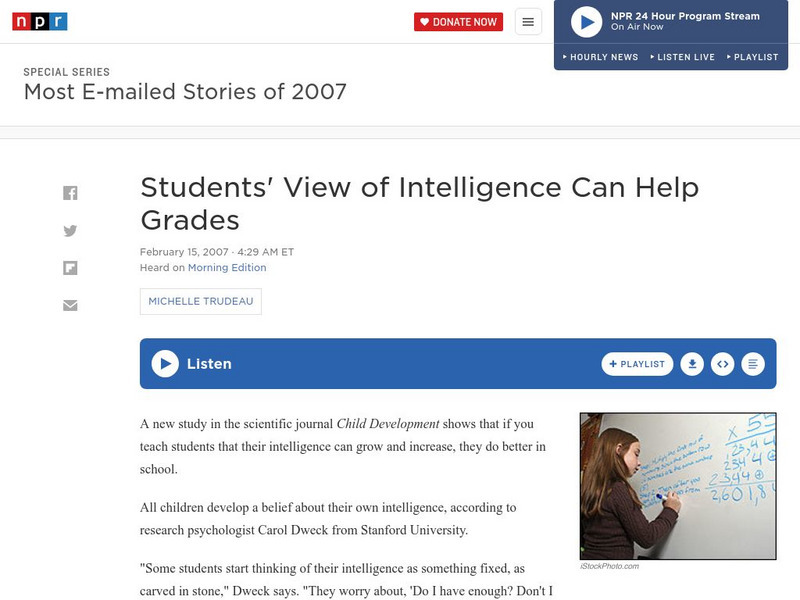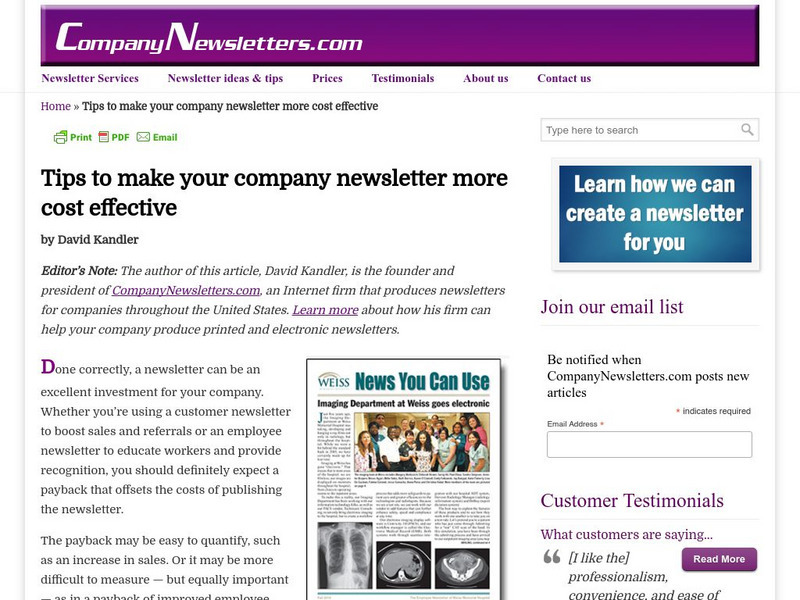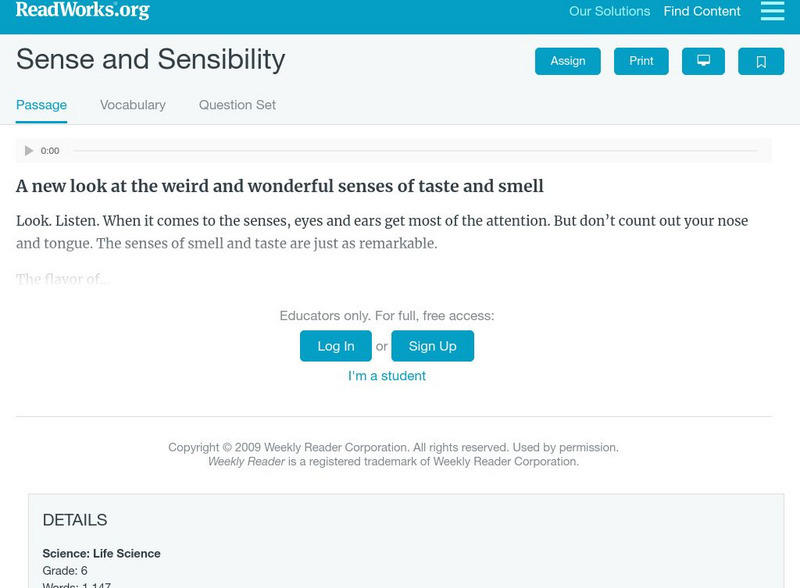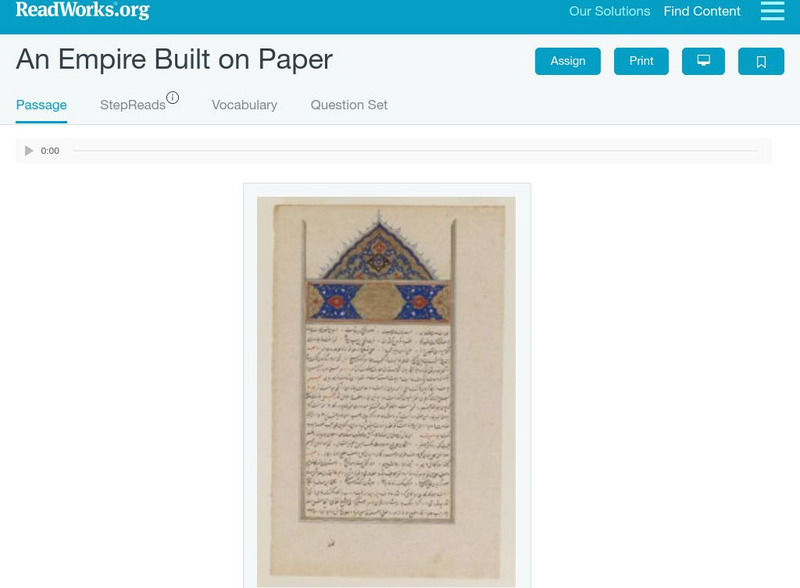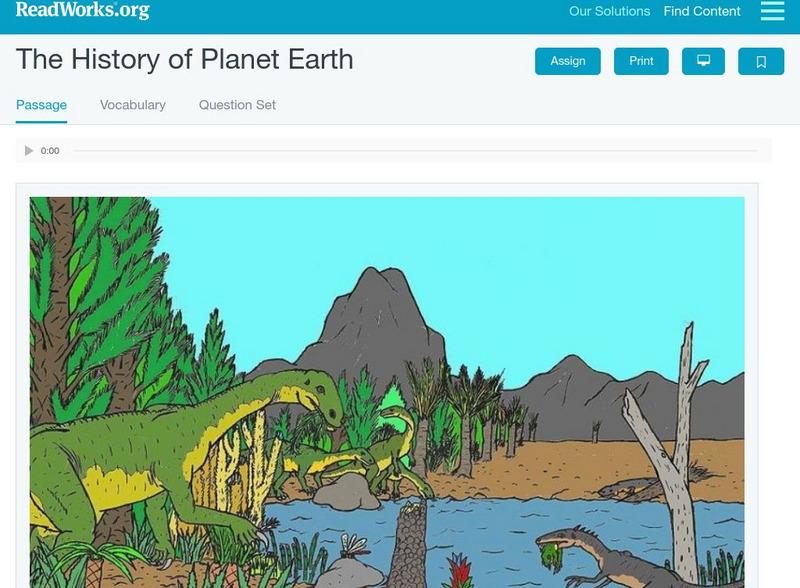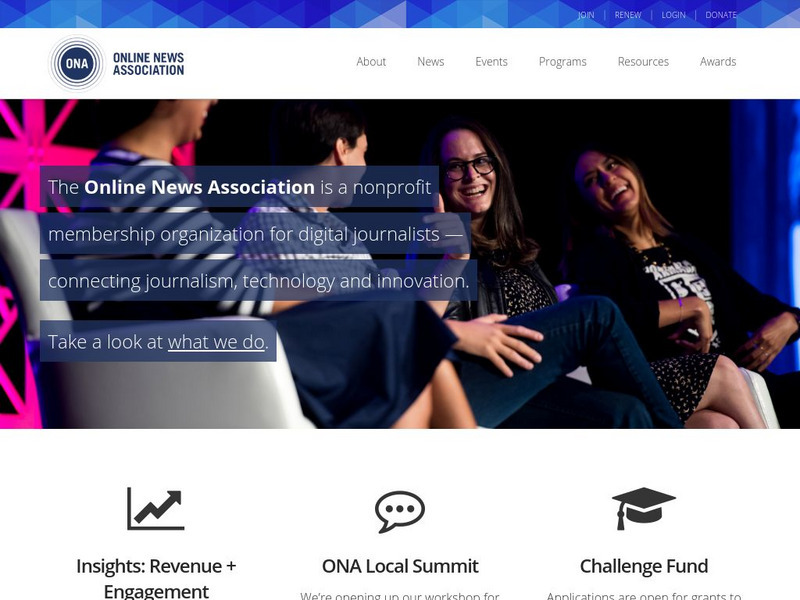Other
Eastport Elem. Sc.: Mrs. Donahue's Site: Distinguishing Between Fact and Opinion
This is a teacher resource for students that focuses on how to separate fact from opinion. Includes questions to ask about a piece of text, examples, and links to online exercises to try.
NPR: National Public Radio
Npr: Students' View of Intelligence Can Help Grades
How is a child's view of intelligence and grades linked? Can intelligence increase? A study from the journal "Child Development" examines the topic of intelligence and "shows that it you teach students that their intelligence can grow,...
Other
Company Newsletters: Cost Effective Newsletters
This site from CompanyNewsletters.com provides some advice on how to choose the right articles and format to make your newsletter better.
Other
The International Press Institute
The International Press Institute describes itself as "a global network of journalists, editors and media executives, dedicated to freedom of the press and improving the standards and practises of journalism." To that end, this site...
Read Works
Read Works: News Debate Battle of the Binge
[Free Registration/Login Required] An informational text arguing for and against competitive eating contests. A question sheet is available to help students build skills in reading comprehension.
Read Works
Read Works: Sense and Sensibility
[Free Registration/Login Required] An informational text about the sense of smell and the sense of taste. A question sheet is available to help students build skills in reading comprehension.
Read Works
Read Works: An Empire Built on Paper
[Free Registration/Login Required] An informational text about the origin a paper in China. A question sheet is available to help students build skills in reading comprehension.
Read Works
Read Works: See if I Care
[Free Registration/Login Required] A literary text about a newspaper editor who is tricked into following a false lead. A question sheet is available to help students build skills in reading comprehension.
Read Works
Read Works: Fuels of the Future
[Free Registration/Login Required] Students read about renewable energy sources that may replace fossil fuel in the future. A question sheet is available to help students build skills in comparing and contrasting.
Read Works
Read Works: The History of Planet Earth
[Free Registration/Login Required] This informational text passage shares information about the history of the earth and its landforms. This passage is a stand-alone curricular piece that reinforces essential reading skills and...
Other
Channel One: Lesson Plan: How to Spot Fake News
A lesson plan explores the problem of fake news sites, featuring a Channel One News video about the issue. What are the best approaches to decoding the real from the fake?
E Reading Worksheets
E Reading Worksheets: Fact and Opinion: Reading Test 3
A 25-question quiz where students must identify statements as fact or opinion. Results can be printed, saved, or emailed.
Community Learning Network
Community Learning Network: Journalism Theme Page
This site from the Community Learning Network has great information on the art of journalism. The site is outlined by links for easy navigation and contains a rather exhaustive section on general resources. A great site to check out on...
Other
Ona: The Online News Association
With access virtually unrestricted, this site was created by journalists to help raise the standards of news reporting currently available via the Internet.
Sophia Learning
Sophia: Bias
Notes introducing bias and demonstrating how to identify slight, moderate, and strong bias in a text. Notes can be both read and listened to.
Other
Critical Thinking: Basic Questions & Answers
An interesting interview with Richard Paul discussing what critical thinking means. There are many insights as to what critical thinking involves and how it should be used in the classroom.
Discovery Education
Discovery Education: Your Daily Learning Platform
An index to the Discovery Channel. Find resources for teachers, students, and even parents, from science experiments to math help, to virtual field trips.
Other
Becoming a Critic of Your Thinking
This resource presents an article that explains why it is important to be someone who is a good thinker. Provided are four strategies for critical thinking.
Annenberg Foundation
Annenberg Learner: Civil Liberties Recap: You Be the Judge
How well can you decide the balance of civil liberties? Review three case summaries as well as the laws and facts about each case and arguments, and then make a ruling.
Annenberg Foundation
Annenberg Learner: Cast Your Vote!
Cast your vote and answer some questions on the accuracy, usefulness, and impact of polls. Then read about what role polls play in an election.
Other
Society of Professional Journalists: Freedom of Info.
This resource is a great tool for journalists and non-journalists to obtain information from federal and local government sources. Access to this information can make or break a news story.
Other
New York State Library: Student Activity: Primary Versus Secondary Sources
Read about the Railroad Strike of 1877 using three excerpts from textbooks and three original newspaper articles. Compare and contrast the information in the primary and secondary sources.
Cornell University
Cornell University: Library: Critically Analyzing Information Sources
A quick guide to help you determine the relevance and authority of a resource.
George Mason University
Gmu: Virginia Montecino: Criteria to Evaluate the Credibility of Www Resources
An easy-to-follow guide to assist in determining whether online resources are reliable and true. Find questions to ask while reviewing sources. CCSS.ELA-Literacy.CCRA.W.8 and CCSS.ELA-Literacy.CCRA.R.9

